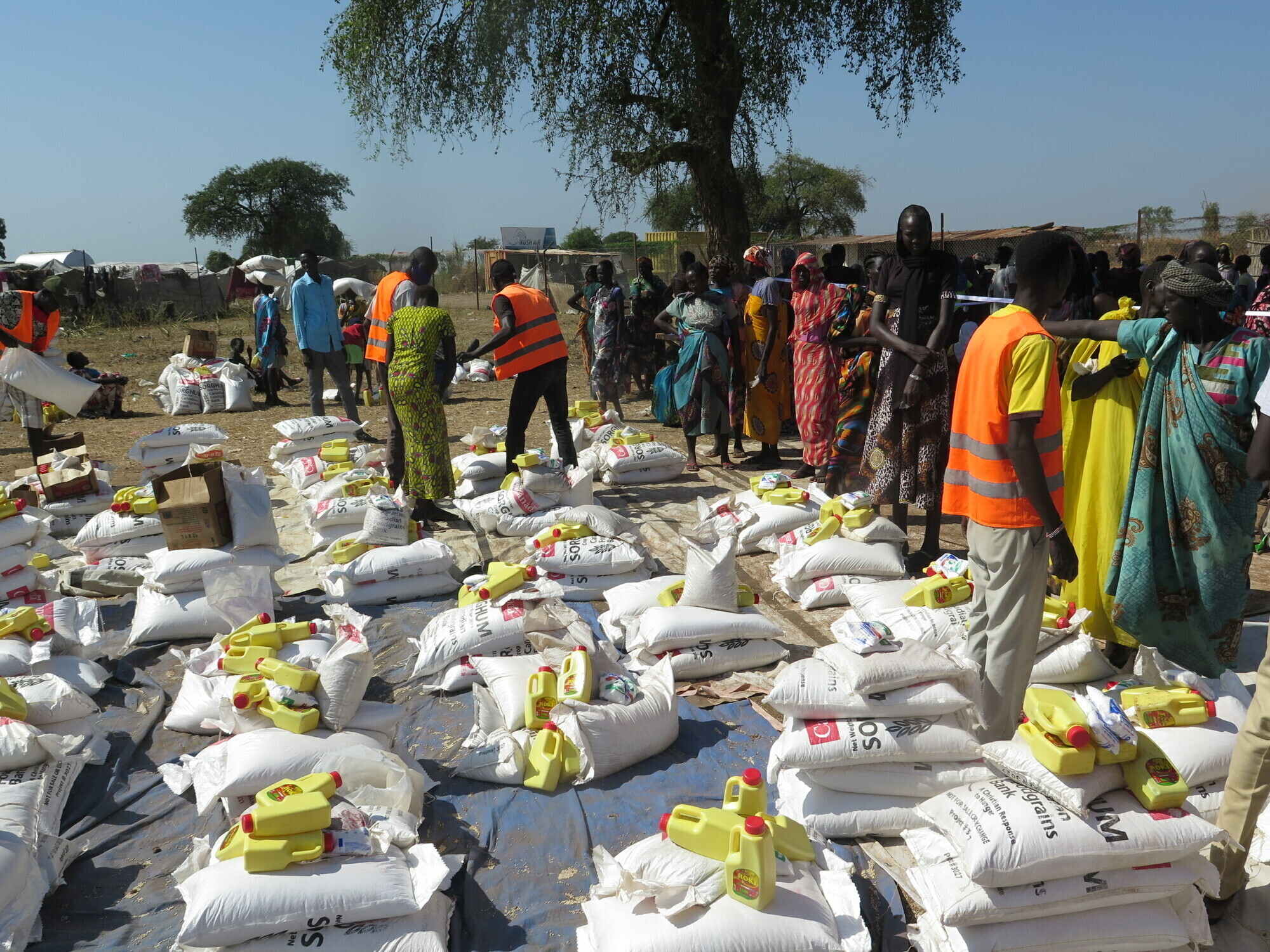MCC responds to devastating hunger crisis in South Sudan
As food security worsens around the world, hope is not lost

“If I did not get registered for this food, my children would have died of hunger.”
This is the stark reality that Nyarwot Bim Chan is facing in South Sudan today. A mother of five at 28, Chan’s options to provide for her family are devastatingly limited.
Near-constant conflict across the country for the last three decades has had a drastic effect on the South Sudanese people: 18% of the population are internally displaced and 63% don’t have sufficient and safe access to food. And Tadeo Santonino, a program officer for MCC in South Sudan, says the impacts of the COVID-19 pandemic have only made things worse.
“On top of the higher costs we saw because of the pandemic, South Sudan depends entirely on oil exports for revenue, and oil production was severely impacted by restrictions. The impacted production led to reduced revenue for the government workers, which meant there was less capacity for the government to provide services of all kinds, including agricultural support.”
But thanks to the support of MCC donors, in the midst of this crisis, Chan and her family are not entirely without hope. MCC partner South Sudanese Development and Relief Agency (SSUDRA) is distributing food rations to hundreds of the most vulnerable households in South Sudan, including Chan’s in the Rubkona camp for internally displaced South Sudanese.

Chan has been receiving monthly packages of sorghum, beans, salt and cooking oil since 2020 and says in no uncertain terms, that it has kept her family alive.
“The food I receive takes us 22 days to get through,” she says. “I cover the remaining days by buying food with my earnings from selling water and juice.”
Another layer of instability to food supplies in South Sudan are the floods. Over the last three years, extreme flooding has wreaked havoc on what crops the people of Rubkona and millions of others have attempted to plant. The same floods have blocked or entirely washed away essential roadways for delivering food or relief to the region.
“Even just finding space to do the distribution is very challenging because the few places that aren’t flooded are already full of people,” says Santonino.
In addition to Chan, SSUDRA has been delivering monthly food packages to 800 of the most vulnerable homes in Rubkona through MCC’s account at Canadian Foodgrains Bank.

